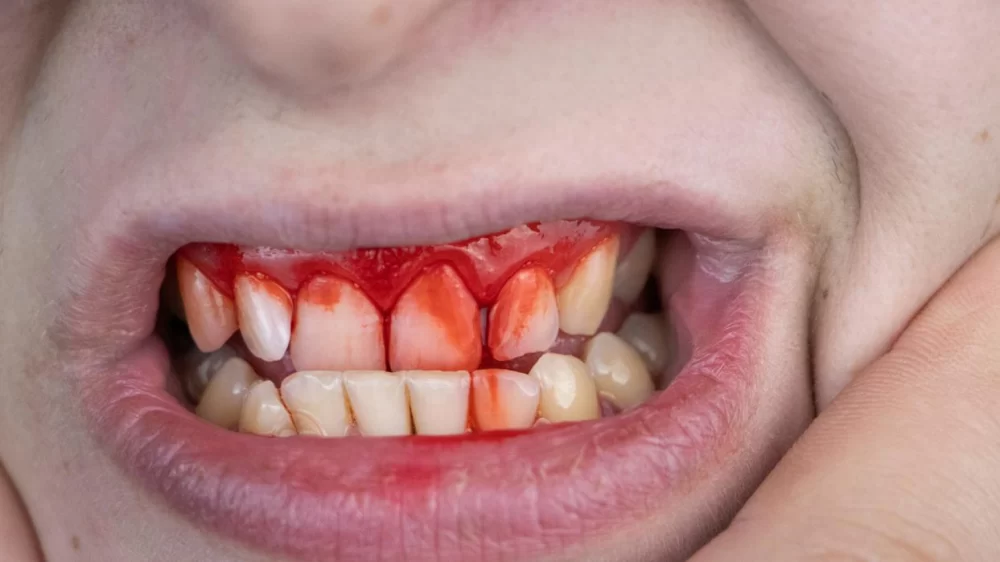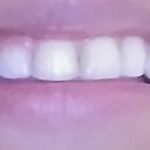
How to Stop Dental Bleeding After an Injury: Effective Tips for Immediate Relief
1. Understanding Dental Bleeding: Why It Happens After an Injury
Have you ever experienced a dental injury, such as accidentally biting your lip or knocking your teeth while playing sports? If so, you're probably familiar with how terrifying it can be when you start seeing blood. As someone who has had their fair share of dental mishaps, I can tell you that it's crucial to understand the cause of the bleeding to manage it properly.
When an injury occurs in the mouth—whether from a fall, an accident, or a rough impact—the blood vessels in the gums, mouth lining, or even the teeth can rupture, leading to bleeding. This bleeding might seem excessive initially, but in most cases, it is manageable if you act quickly. Whether it’s your gums or a tooth that's been injured, knowing the right steps can help you control the bleeding until you get proper treatment.
2. First Aid for Dental Bleeding: Step-by-Step Guide
When I experienced a chipped tooth during a hike one summer, I was horrified when I noticed blood pooling in my mouth. Luckily, I was prepared with some basic dental first aid knowledge. Here’s what you should do to stop dental bleeding after an injury:
- Stay Calm: The first step is to remain as calm as possible. Panicking can increase your heart rate, which may make the bleeding worse. Take deep breaths and focus on the task at hand.
- Apply Pressure: Use a clean cloth or gauze pad and apply gentle pressure to the injured area. If it’s a gum injury or a cut inside your lip, placing the gauze over the wound can help stem the flow of blood.
- Cold Compress: To reduce swelling and constrict blood vessels, apply a cold compress to the outside of your mouth or cheek near the injury. A cold pack wrapped in a cloth works best. Do this for 10-15 minutes at a time to reduce both swelling and bleeding.
- Elevate Your Head: If you're sitting or lying down, try to elevate your head slightly. Keeping your head above your heart will help reduce blood flow to the affected area, which may slow down the bleeding.
- Do Not Spit or Rinse Too Vigorously: I made the mistake of rinsing my mouth too quickly after my own dental injury, which can sometimes cause the blood vessels to re-rupture. Instead, gently rinse with a saltwater solution (if possible) to keep the area clean, but avoid spitting forcefully or using mouthwash, as it can irritate the wound.
3. How to Manage Bleeding from a Knocked-Out Tooth
In a more severe situation where a tooth is knocked out or severely loosened, the bleeding can be more intense. This happened to me once when I took a ball to the face during a friendly soccer game. Here’s what I did—and what you should do—in the case of a knocked-out tooth:
- Find the Tooth: If your tooth is knocked out, try to locate it as quickly as possible. Pick it up by the crown (the top part), avoiding touching the root. If the tooth is clean, rinse it gently with milk or saline solution—never with water, as it can damage the delicate tissues.
- Reinsert the Tooth (If Possible): If you’re able to, gently try to place the tooth back into its socket. If it goes in without resistance, hold it in place with gentle pressure. If you can’t reinsert the tooth, keep it moist by placing it in a container with milk, saline solution, or even your own saliva.
- Control the Bleeding: Just like with other injuries, apply gentle pressure to the gum with a gauze pad or cloth to help control the bleeding. Hold the pad in place for at least 15 minutes before checking if the bleeding has stopped.
- Seek Immediate Medical Help: Whether the tooth is reinserted or not, it’s critical to visit a dentist as soon as possible. A knocked-out tooth is a dental emergency, and the faster you get to a professional, the better your chances are of saving the tooth.
4. When Should You Seek Professional Help?
Not all dental bleeding can be treated at home, and it’s essential to recognize when you need professional care. Here are some situations when you should seek immediate medical or dental attention:
- Excessive Bleeding: If the bleeding doesn't stop after 15-20 minutes of applying pressure, or if it is particularly heavy, it’s a sign that something more serious is at play, and you should head to the emergency room or contact your dentist.
- Severe Pain: If the injury is accompanied by severe pain, particularly when trying to bite or chew, it’s possible you may have a fracture or other internal injury that requires immediate attention.
- Loss of Consciousness: If you or someone you know loses consciousness due to a dental injury, this is a serious medical emergency and requires immediate medical intervention.
- Signs of Infection: If, after the bleeding stops, you notice swelling, pus, or a foul taste in your mouth, this could be a sign of infection. Infections can worsen rapidly, so it’s important to see a dentist for treatment.
5. Preventing Dental Injuries in the Future
While I can’t guarantee that I won’t face another dental injury, there are certainly steps I’ve taken to minimize the chances of one happening again. As someone who enjoys sports and outdoor activities, prevention is key.
- Wear Mouthguards: Whenever I play sports like basketball or soccer, I always wear a custom mouthguard to protect my teeth from accidental impacts. A good mouthguard can significantly reduce the risk of dental injuries.
- Be Mindful of Hard Foods: I’ve learned the hard way that biting into something too hard (like a tough apple or caramel) can damage teeth. I always cut hard foods into smaller pieces to avoid unnecessary strain on my teeth.
- Maintain Oral Health: Keeping my gums and teeth healthy helps avoid any unnecessary issues during an injury. I brush and floss regularly, and I visit my dentist for routine check-ups, which reduces the chances of infections and other complications.
6. Final Thoughts
Dental bleeding after an injury can be alarming, but with the right knowledge and quick action, it’s usually manageable. I’ve found that staying calm, applying pressure, and using a cold compress has helped me in the past, but always remember that if the situation is more severe, it’s critical to seek professional help immediately.
If you’re unsure where to go for dental care, visit Dentistry Toothtruth for a list of trusted dental clinics and services. They can help you find the right care and ensure that your dental injuries are treated properly. Remember, your teeth are essential, so taking care of them—and knowing how to handle an injury—will keep you smiling for years to come!







 Universal Dentistry4.0 (144 review)
Universal Dentistry4.0 (144 review) Wai Kahala Dentistry LLC5.0 (43 review)
Wai Kahala Dentistry LLC5.0 (43 review) Whittier Square Dentistry - Dentist in Whittier4.0 (64 review)
Whittier Square Dentistry - Dentist in Whittier4.0 (64 review) Dr. May P. Chu, DDS5.0 (161 review)
Dr. May P. Chu, DDS5.0 (161 review) Dr. Matrullo & Associates4.0 (93 review)
Dr. Matrullo & Associates4.0 (93 review) Oral Surgery Services Inc4.0 (89 review)
Oral Surgery Services Inc4.0 (89 review) The Importance of Oral Health Education During Pregnancy for a Healthy Pregnancy
The Importance of Oral Health Education During Pregnancy for a Healthy Pregnancy Best Tips for Brushing Your Teeth Properly for Healthy Gums: Essential Techniques for Oral Health
Best Tips for Brushing Your Teeth Properly for Healthy Gums: Essential Techniques for Oral Health Why Skipping Dental Checkups Can Lead to Bigger Oral Health Problems
Why Skipping Dental Checkups Can Lead to Bigger Oral Health Problems Advantages of Porcelain Dental Restorations
Advantages of Porcelain Dental Restorations How Can Diabetes Cause Tooth and Gum Problems? Preventing and Managing Oral Health Issues
How Can Diabetes Cause Tooth and Gum Problems? Preventing and Managing Oral Health Issues Healthy Habits for Promoting Good Oral Health and Hygiene: Tips for a Healthy Smile
Healthy Habits for Promoting Good Oral Health and Hygiene: Tips for a Healthy Smile